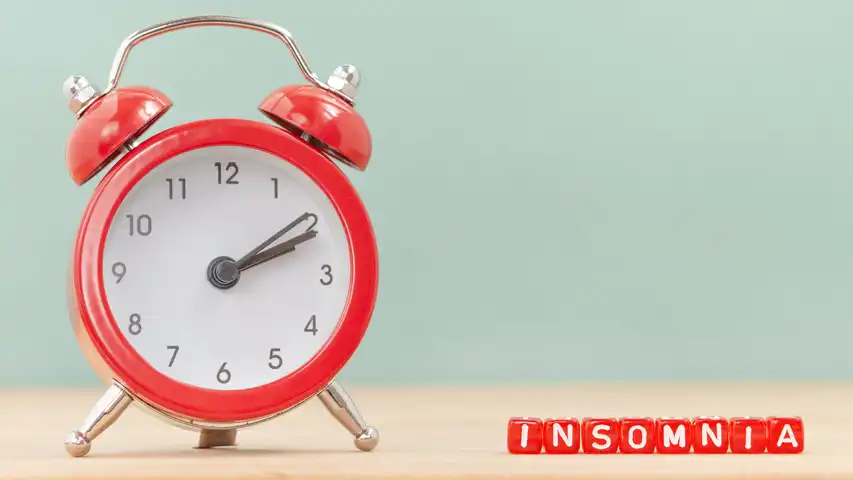Struggling to sleep through the night? You’re not alone. Perimenopause insomnia is one of the most frustrating—and least talked-about—symptoms of the menopause transition. The good news? You’re not powerless. Understanding what’s happening and taking the right steps can help you reclaim your nights and your sanity.

Why Perimenopause Insomnia Happens to So Many Women
About 50% of women going through perimenopause report insomnia. And it’s not just hormones to blame—though they definitely play a role.
Perimenopause insomnia is part of what many call the Menopause Puzzle. Alongside fluctuating estrogen and progesterone, there are other factors:
- Aging and natural changes in sleep patterns
- Personal health or chronic conditions
- Emotional load from parenting, caregiving, and career demands
- Everyday stress and anxiety
And here’s a surprising twist: how you react to poor sleep can actually make insomnia worse. Worrying about sleep, compensating with naps, or trying to force rest can all backfire.
Want to learn how other symptoms connect? Check out this guide on perimenopause-related dizziness.
How Perimenopause Insomnia Affects You During the Day
Perimenopause insomnia doesn’t just leave you tired—it can impact your entire day.
When sleep is disrupted for weeks or months, it affects:
- Focus and memory
- Mood (think: irritability, sadness, anxiety)
- Patience and decision-making
- Productivity and relationships
You might feel foggy, forgetful, or just “off.” And yes, it can leave you emotionally drained. Sleep isn’t just about rest—it’s critical for mental clarity and mood stability.
If your mood has been in a slump lately, this article on perimenopause depression might help you connect the dots.

Perimenopause Insomnia and Its Impact on Mental Health
There’s a strong, two-way relationship between sleep and mental health.
Anxiety or depression can make it harder to sleep—and chronic poor sleep can cause or worsen both conditions. Many women in perimenopause feel emotionally overwhelmed or even question their sanity. That’s not weakness—it’s biology and stress colliding.
Improving your sleep can bring emotional relief. Addressing insomnia isn’t just about nights—it helps you show up better every day.
CBT for Insomnia: A Proven Solution That Works
Cognitive Behavioral Therapy for Insomnia (CBT-i) is a powerful, research-backed method that helps you rewire your thoughts and habits around sleep. No medication required.
CBT-i teaches you to:
- Understand how your sleep patterns work
- Stop trying to force sleep
- Create new behaviors that encourage natural, restful sleep
- Break the mental spiral of anxiety and frustration around sleep
Here’s what it involves:
- Sleep education (Learn the science of sleep)
- Sleep restriction (less time in bed, better sleep quality)
- Stimulus control (training your brain to associate your bed with sleep)
- Cognitive restructuring (changing unhelpful thought patterns)
It’s typically done in 4–6 sessions, and many people see improvement within weeks. You can even find digital CBT-i programs or work with a therapist online. This external resource can help you find a CBT-i provider near you.

What To Do When You Can’t Sleep at Night
If you wake up at 2 a.m. staring at the ceiling, try this:
- Only go to bed when truly sleepy—don’t stick to a clock if you’re wide awake.
- Stick to the same wake-up time every morning, even after a bad night.
- Follow the 15–20-minute rule: If you’re not back asleep within that time, get up. Do something low-stimulation like reading, stretching, or listening to a podcast—no phones, emails, or cleaning sprees.
- Know that hot flashes (a major sleep disruptor) peak in about 5 minutes but can take up to 20 minutes for your body to cool down. Give yourself time and stay calm.
Avoid naps or sleeping in. It sounds harsh, but it helps your body rebuild natural sleep pressure—making the next night better.
Can I Use Sleep Meds Alongside CBT?
Yes, but short-term.
Sleep medications can offer quick relief but aren’t a permanent solution. CBT-i teaches you skills you can use for life, including during future sleep setbacks. If you do take sleep aids, think of them as temporary support—not a fix.
Want to boost your overall sleep foundation? Explore these essential vitamins for women over 40.
FAQs: Perimenopause Insomnia
Q: Is perimenopause insomnia permanent?
A: Not necessarily. Many women see improvement after menopause, especially with the right tools and lifestyle changes.
Q: Can diet or supplements help?
A: Yes. Magnesium, melatonin, and certain herbal remedies may support sleep, but talk to your doctor before trying anything new.
Q: Does cutting caffeine or alcohol really make a difference?
A: For many women—yes. Both can interfere with sleep cycles, especially during perimenopause when sensitivity increases.
Q: How long does CBT-i take to work?
A: Many people notice better sleep within 2–4 weeks. Most programs last 4–6 sessions.
Q: Can I Use Sleep Meds Alongside CBT?
Yes, but short-term.
Sleep medications can offer quick relief but aren’t a permanent solution. CBT-i teaches you skills you can use for life, including during future sleep setbacks. If you do take sleep aids, think of them as temporary support—not a fix.
To further support better sleep, consider adding magnesium to your nightly routine. This essential mineral plays a vital role in:
- Calming the nervous system and reducing anxiety
- Regulating melatonin production (your sleep hormone)
- Supporting muscle relaxation and reducing nighttime cramping
- Improving sleep quality and time spent in deep sleep
Many women over 40 are deficient in magnesium—especially if experiencing stress, poor diet, or digestive issues. Magnesium glycinate or magnesium citrate are commonly recommended for sleep support. You can also boost your intake through foods like leafy greens, almonds, pumpkin seeds, dark chocolate, and whole grains.







